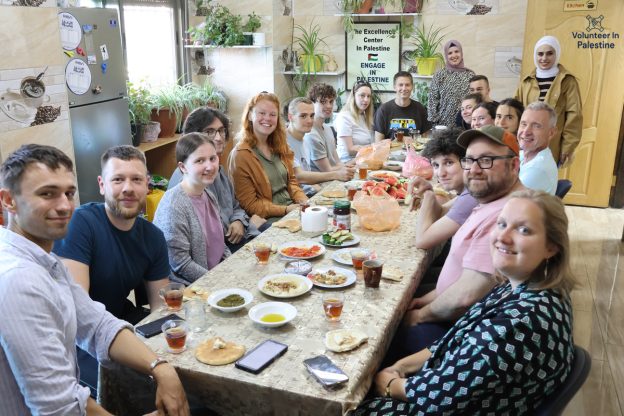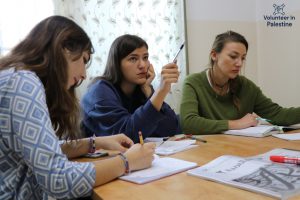Palestinian Culture and Customs: Palestinians have a rich cultural heritage, and because they have collectively experienced so much displacement and devastation over the last century, sustaining Palestinian customs and traditions is vital for holding the community together and preserving their identity.
Whether in an ancient town in the West Bank, a refugee camp in a neighboring country, or in Diaspora communities around the world, Palestinians have a shared heritage and culture that allow them to carry a sense of “home” with them wherever they are. In this article, we’ll discuss some of the major aspects of Palestinian society and culture, including their customs, religion, language, literature, art, costumes, and music of the land and its inhabitants.
Table of Contents
History and Regional Influence
Palestine has a complicated and controversial history. History tells us that this region has been under thirteen separate occupations, including by the Assyrians, Greek and Roman Empires, and the Ottoman Empire. Following World War II in 1948, while the area was controlled under British mandate, Great Britain unjustly established Palestine as a Jewish homeland as part of the Zionist movement. Resulting in the displacement of hundreds of thousands of Palestinians, this event became known as the “Nakba” or “catastrophe,” and thus began the struggle for freedom and equality that shapes Palestinian nationalism and identity today.
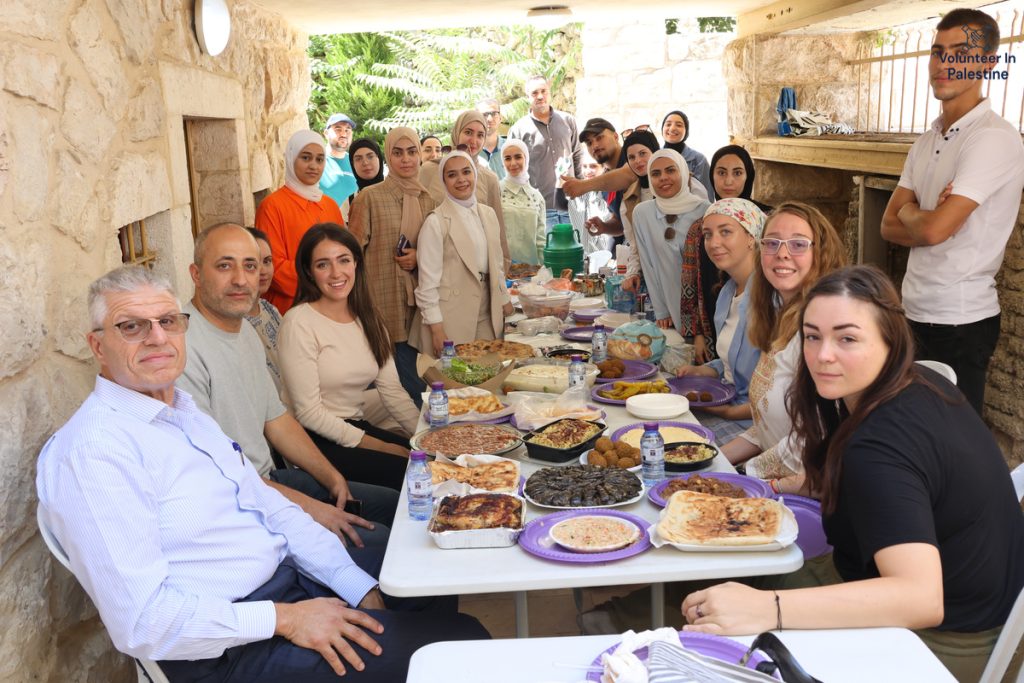
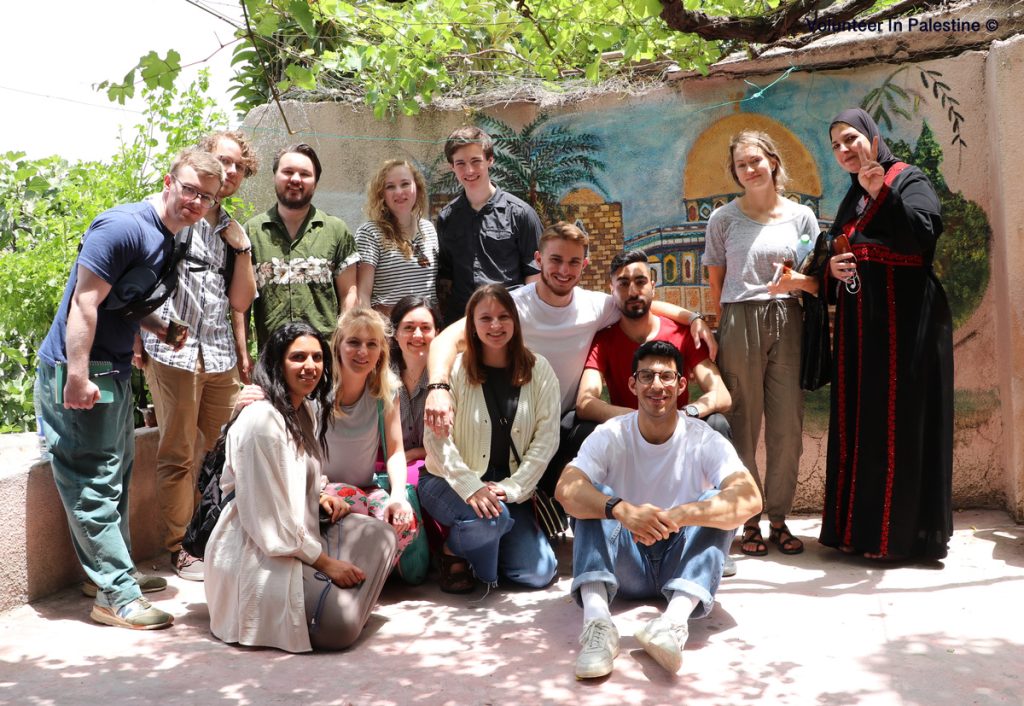
Many of the core Palestinian customs have been shaped by Islam and interaction with neighboring countries. Close government ties and immigration with Lebanon, Jordan, Syria, and other countries of the Arab world have resulted in similar norms across this region. While Palestinian culture is very much a part of Middle Eastern, Arab, and Muslim culture, it is unique and distinguished in various ways.
Palestinian people are well known for being incredibly hospitable, and you will likely be invited to have tea or coffee with someone you have just met. Despite how they’ve been treated historically, Palestinians are quick to see the best in people, and they enjoy meeting with internationals from all over the world and spending time with them.
Geographically, Palestine comprises two main areas: the Gaza Strip along the Mediterranean coast and the West Bank, which lies east of Jerusalem. Some countries recognize the Occupied Palestinian Territories as their own independent state, while others do not. Even without recognized borders and sovereignty, the Palestinian people are passionate about their nation and preserving their abundant culture in various ways.
Israeli Control over Palestine
It is known that the Palestinian borders are fully controlled by Israel, which decides who enters and who does not. Israel’s strict policies and regulations prevent Palestinians from leaving the Occupied Palestinian Territories, and even if they find a way to travel legally, Israel can simply deny them entry when they return. Added to this, Palestine no longer has its own airport, as the Yasser Arafat International Airport in Gaza was destroyed by Israeli forces in 2000.
As a result, Palestine has fewer visitors than other countries with control over their borders and where visitors can visit more easily. Consequently, this makes Palestinians more eager to host internationals who come from different countries around the globe.
Resistance and Identity
Due to this history of violence and oppression, resistance and pursuit of freedom and equality have naturally become an ingrained part of Palestinian culture. This collective resistance is expressed through political activism, with native intellectuals, academics, and activists playing pivotal roles in advancing the Palestinian cause on the global stage. Among citizens living in the Occupied Palestinian Territories and diaspora communities, practicing civil disobedience and nonviolent resistance has also been a widespread form of activism.
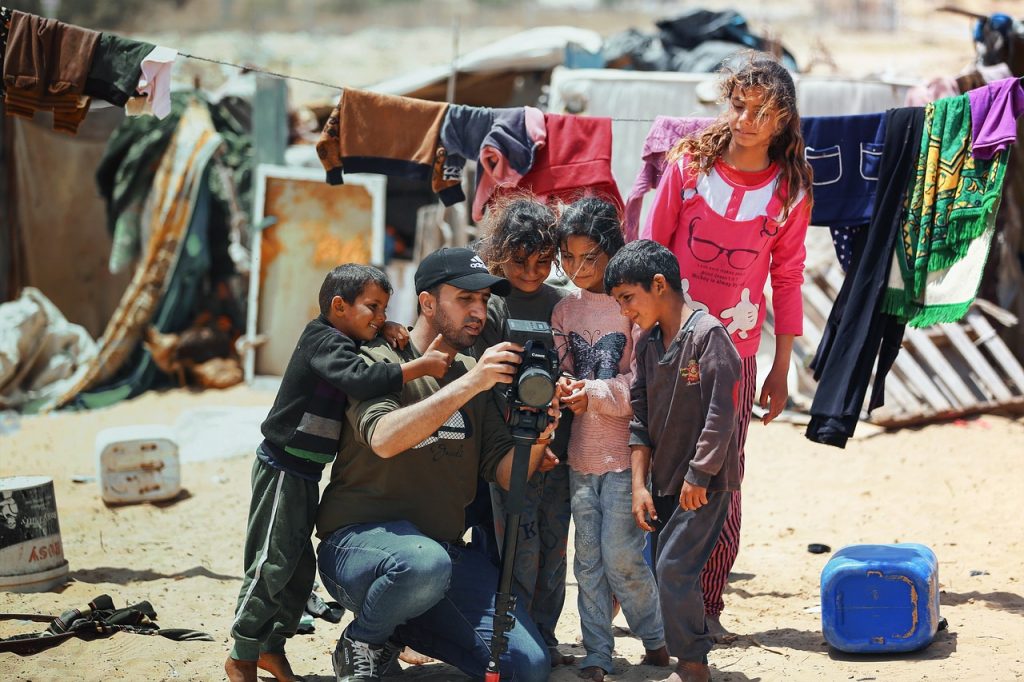
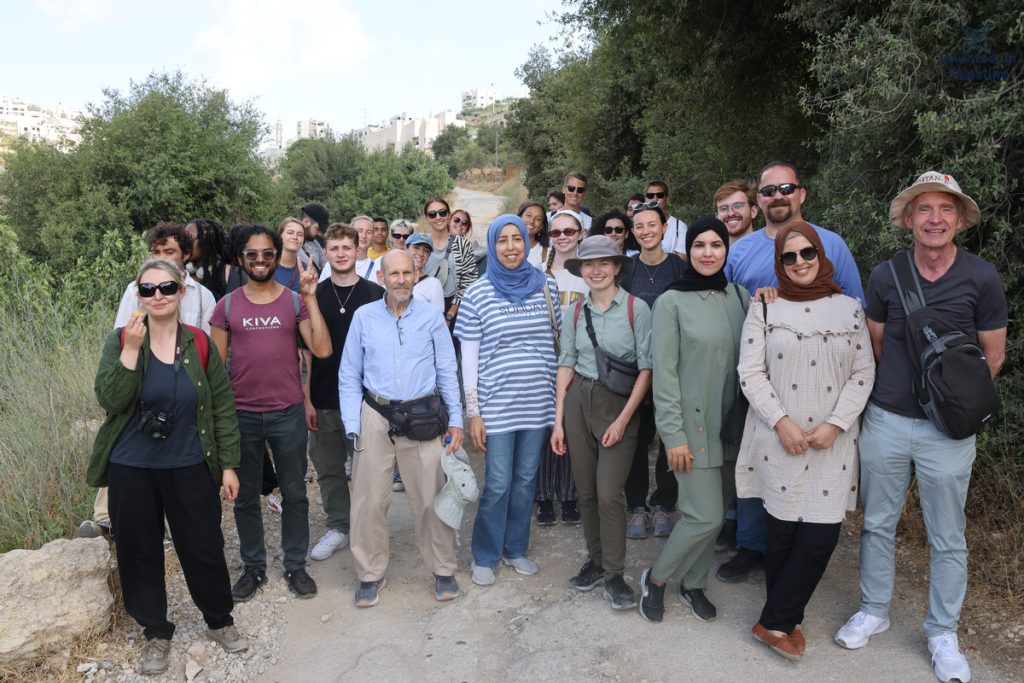
This identity of resistance is reflected in popular historical literature and poetry by authors like Mahmoud Darwish, Ghassan Kanafani, Raja Shehadeh, and Fadwa Tuqan, to name a few. The resilience of the Palestinian people in the face of persistent adversity is expressed and preserved in their writings and has greatly influenced Palestinian culture.
This yearning to return to their homeland and live freely and safely among their people is also expressed in music, film, and visual arts, which have proven powerful tools for educating the world about what’s been happening in Palestine and creatively illustrating the need for resistance. As you can see, resistance in the pursuit of freedom, equality, and justice has become intertwined with the identity of Palestinians and their culture in Palestine and around the world.
The Cultural Life of Palestinians
Despite the devastating setback of the Second Intifada in 2005, the region has since experienced a cultural revival. At the heart of this revival has been Ramallah, the de facto capital of Palestine.
Considered a more liberal city than Hebron and Nablus, the people of Ramallah have revived and rebuilt the city from those days when much of the infrastructure was attacked by Israeli forces and when Yasser Arafat was put under siege. Now, although not without its challenges, Ramallah bustles with the energy of a people determined to sustain the vibrant Palestinian community. With a constant selection of shows and performances mixing with resurging art and cultural scenes, Ramallah has something to offer the culturally interested traveler. The city is a great example of restoring Palestinian culture through dedication over time.
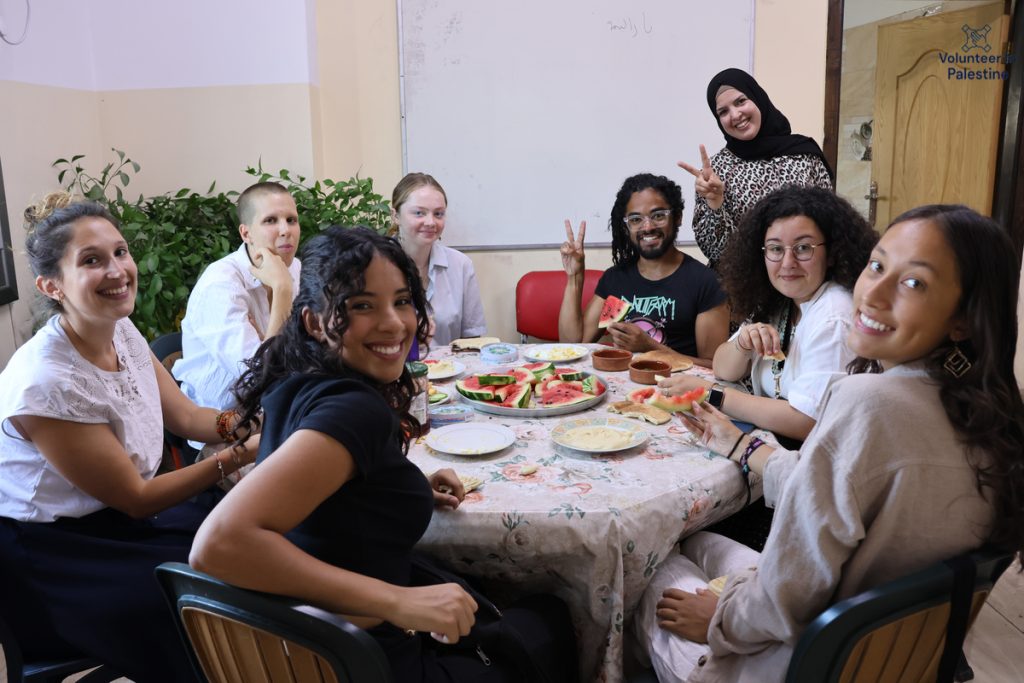
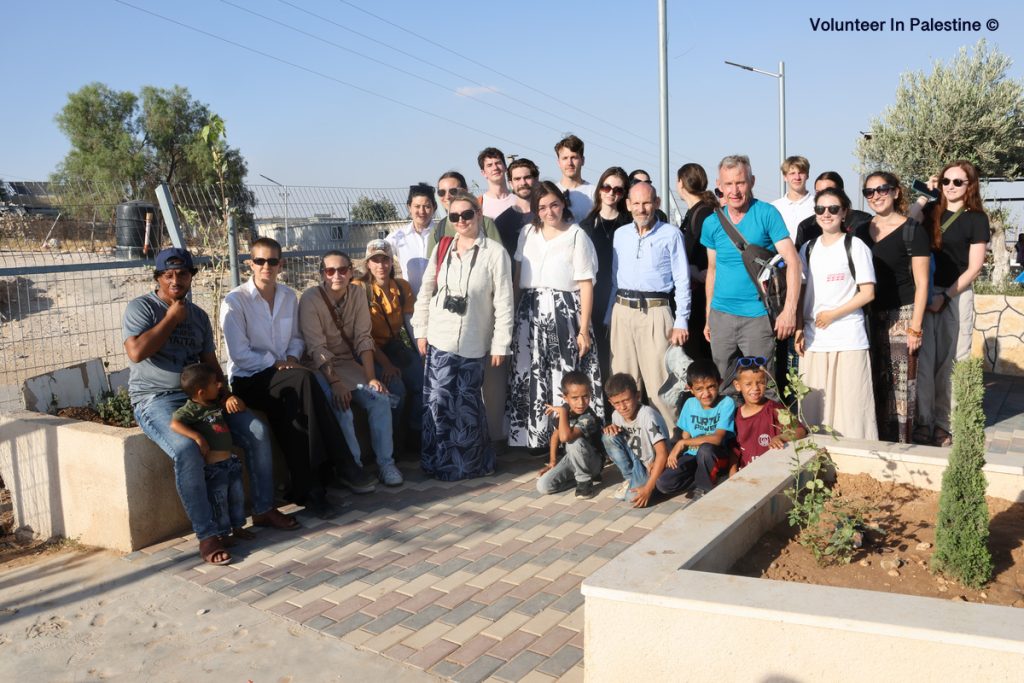
Palestinian Love for Exchanging Cultures
Palestinians are eager to show the rest of the world their culture. They have not always had the opportunity to do so and are therefore keen to share knowledge and allow international visitors to experience their homeland. They gladly engage with and welcome foreigners into their homes and communities, enthusiastically sharing with those who are interested. This hospitality and openness of the Palestinian people is sure to make your trip to Palestine unforgettable, as you will inevitably form lifelong friendships.
Locals not only wish to show you Palestinian culture but are equally keen to learn about other people’s cultures, customs, and ways of being. This glimpse into others’ lives is like a window to the world, a world in which Palestinians are generally unable to experience for themselves due to the strict travel restrictions enforced by Israel.
On top of that, Palestinians are incredibly friendly! While in Palestine, you will be surrounded by people who genuinely want you to have an enjoyable experience in their homeland. As you walk down the street, you’ll likely hear friendly greetings like “Welcome to Palestine” or “Hello, how are you?”. Rooted in a strong sense of hospitality, Palestinians are generally very happy and open to visiting foreigners, even in the most conservative areas.
Meeting New People in Palestine
Visiting Palestine is an exceptional opportunity for you to meet Palestinian people, experience their daily life, learn Palestinian Arabic, and observe the Israeli-Palestinian conflict first-hand. Most importantly, it is an opportunity to significantly and positively influence the lives of Palestinians.
As you have read above, living in Palestine is totally different from living in Europe, the United States, Asia, South America, or Australia. Life in Palestine is characterized by intensive social interactions, a spontaneous lifestyle (people and the way of doing things are not organized according to prearranged plans), hospitality, and an eagerness to know about others and the wider world.
Palestinian Cuisine
The Mediterranean has heavily influenced Palestinian cuisine, emphasizing fresh, locally sourced ingredients and staple foods like bread, meat, cheese, rice, sauces, soups, and desserts. In fact, Palestinians are known for their exquisite cuisine in the region.
Herbs and spices play a very important role in Palestine food– Za’atar is very popular, and we recommend that you try it! Palestine is also well known for dishes such as maqlubeh, kafta, dawali, kunafeh and many more.
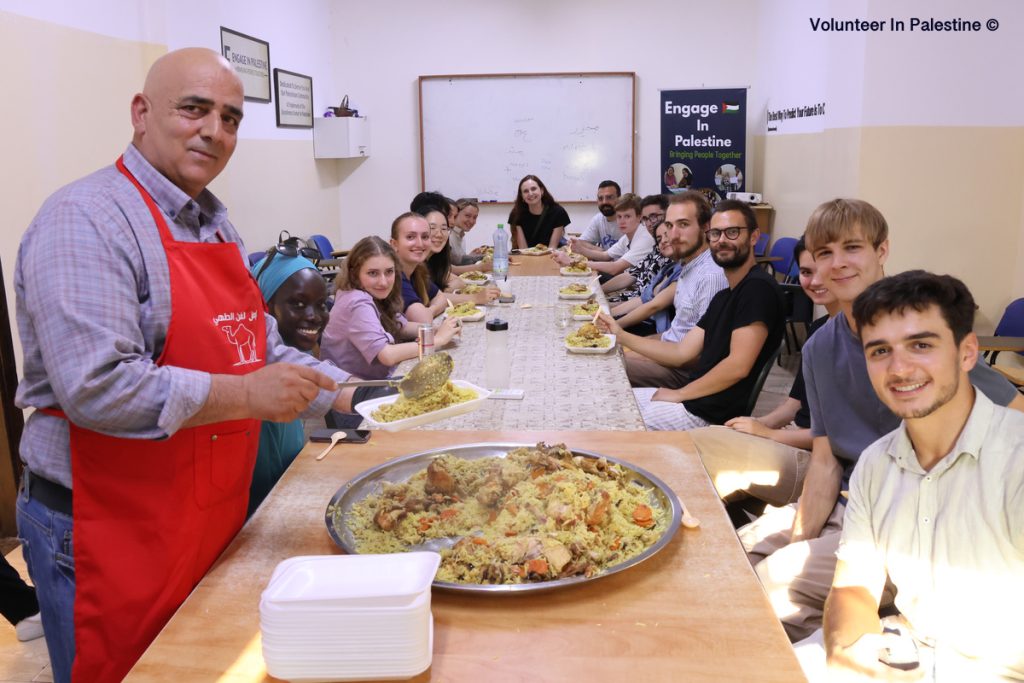
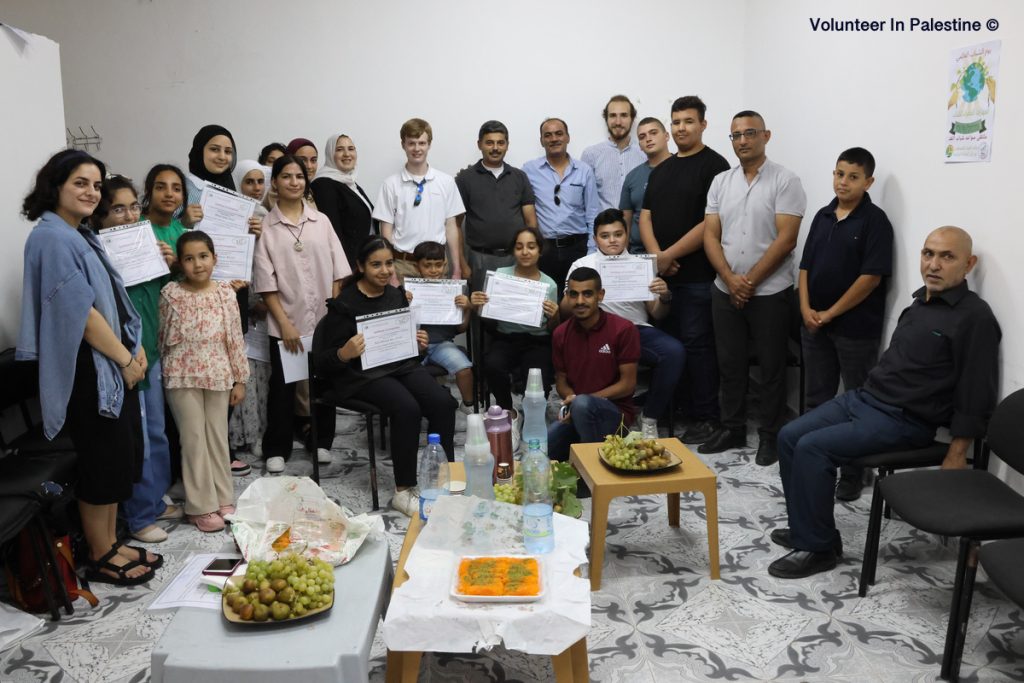
There are many sweet and savory offerings, and although most Palestinians include meat in their diet, following a plant-based diet is quite accessible if preferred. Of course, customary beverages like Arabic coffee, tea, and a variety of fresh juices accompany every mouth-watering dish.
As in many other countries, there is strong national pride in the dishes and traditions revolving around food. From daily life to special events like weddings and community celebrations, preparing food and dining together is essential to Palestinian social customs. Food culture in Palestine is about spending quality time with family and friends and showing generous hospitality to guests. It is also a key element in religious holidays like Eid and Ramadan, where hours are spent each day preparing feasts to be consumed ceremoniously among the family.
Languages Spoken in Palestine
Arabic is the primary language spoken in Palestine, but many citizens also speak some English and Hebrew, an even smaller amount. Within the Arabic language, however, there are numerous dialects. Palestine and its Arab neighbors (e.g., Jordan, Syria, and Lebanon) speak a dialect from the subgroup of Levantine Arabic.
Modern Standard Arabic (MSA), on the other hand, is universally understood in the Middle East, including Palestine, but is generally only used in official circumstances, including in the media and at global or region-wide conferences and events. Arabic dialects are commonly spoken and vary based on the country and the region within that country.
The Palestinian Dialect (اللهجة الفلسطينية)
The Palestinian dialect (اللهجة الفلسطينية) is the everyday spoken language and will be understood not only by the Palestinian people but in the greater region. Fortunately, Levantine Arabic is widely understood throughout the region, and the Palestinian dialect is considered one of the more universally understood dialects because it is one of the closest dialects to MSA.
Why must you better understand the Palestinian dialect if you’ve studied MSA?
Some of the words in MSA are not used in day-to-day conversation, and some people may have difficulty understanding more formal language. Also, even if you are fluent in MSA, you may not understand conversations happening around you because locals do not speak this dialect but speak the Palestinian dialect. The same would be true in any Arabic-speaking country.
For this reason, it is relatively simple to pick up the Palestinian dialect, and your time spent studying MSA will not be wasted. At the same time, learning the local dialect is essential to effectively communicate and better understand the culture and customs of the Palestinian people. Learning the Palestinian dialect is also a great way to build upon your knowledge and expand your language skills.
We have several course options available at the Volunteer in Palestine if you wish to study Arabic.
Palestinian Dialect – Basic Info
| Native speakers | 13 Million Palestinians |
| Language family | Afro-Asiatic > Semitic |
| Dialects | Fellahi; Madani |
| Writing system | Arabic alphabet |
| Dialect varieties | Intelligible varieties of Levantine Arabic |
Religion
Palestine is located in the Holy Land for believers of Islam, Christianity, and Judaism. The religious populations in Palestine are, of course, Muslims, Christians, and, to a lesser extent, Jews. A modern estimate suggests that over 90% of the population identifies as Muslim, with the Sunni sect or division making up the majority of Muslims. The Christians comprise about 6% of the population, and the remainder are Jewish or secular.
Christians and Muslims in Palestine
Palestinian culture is based on helping not only family members and neighbors but also passersby, whoever that person may be. A Palestinian person will automatically offer any possible help that they can. Despite their differing views, Christians and Muslims live alongside one another, which lends harmony to the entire area of Palestine.
This harmony imbues Palestine with a special sense of solidarity among residents. An example of this harmony is the site of the Church of the Nativity and the Mosque of Omar bin al-Khattab, both sharing the same location in Manger Square in the heart of Bethlehem city.
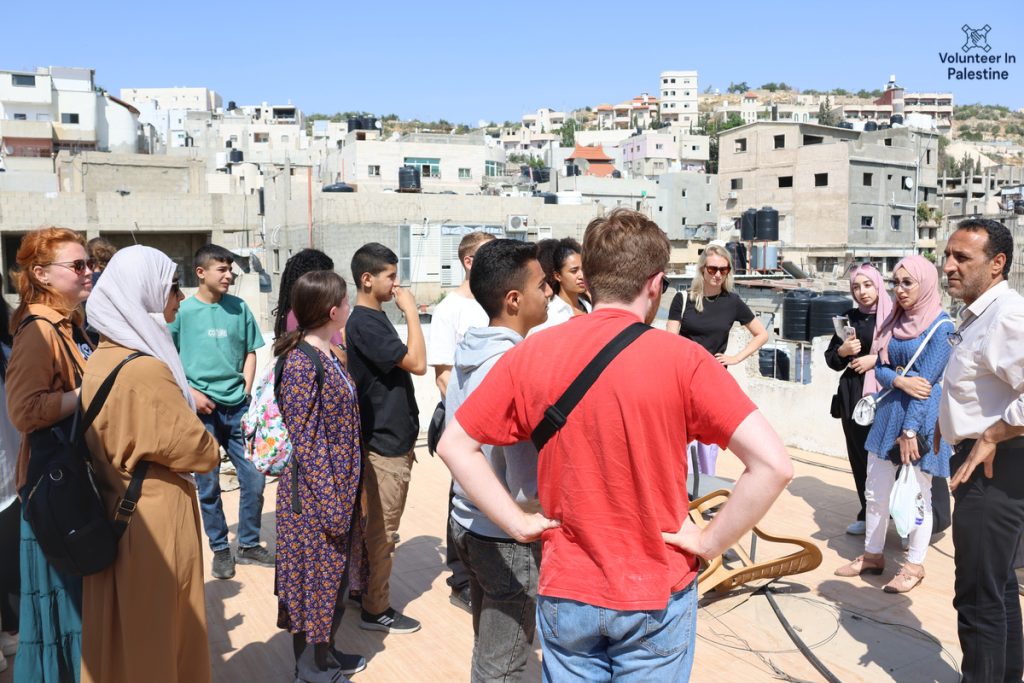
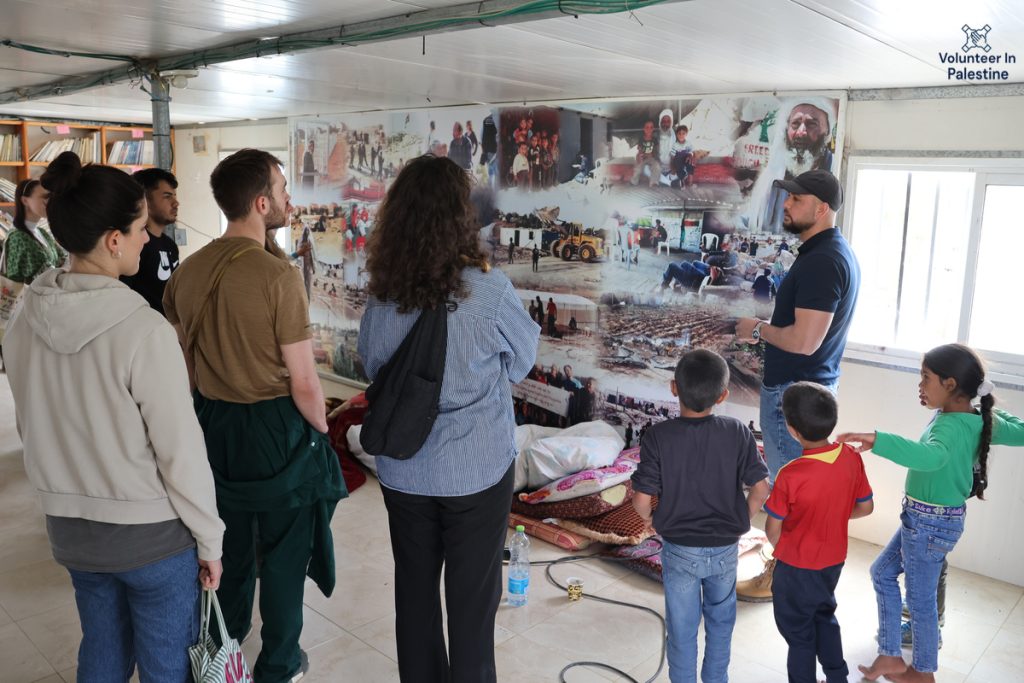
Theatre, Dance and Arts Groups
Despite the ongoing political deadlock, Palestinian society, through numerous NGOs, theatre, dance, and arts groups, and with the help of an eager international audience and concerned activists, has been instrumental in this preservation, and for the traveler, ensured it has remained a part of any journey to the region.
Palestinians are known for their style of Dabke, a traditional Palestinian folk dance performed at celebrations and social events. It involves synchronized foot stomping, accompanied by traditional music.
Palestinian music also incorporates various instruments and styles, with contemporary Palestinian musicians blending traditional sounds with modern influences. Palestinian embroidery is distinguishable with its unique patterns, motifs, and color schemes. Traditional embroidery is called tatreez, an important cultural art form that is identifiable worldwide.
Diaspora Communities
Because Palestinians have been forcibly displaced on a mass scale over the past seventy-five years, Palestinian culture has traveled accordingly and is celebrated around the world among the diaspora communities and beyond. This includes communities in neighboring Lebanon and Jordan as well as the United States, but Palestinian culture and what it represents has spread well beyond these geographical borders, contributing to a global Palestinian identity.
Final Remarks
Your time in Palestine will be rich and rewarding. No matter how long you must immerse yourself in this culture, it will be time well spent. Engaging in Palestinian culture and feeling like more than just a tourist is incredibly easy. If you take time to make friends and walk the unbeaten path, you will have more pictures, stories, and adventures than you could have imagined.
Most international visitors, interns, students, and volunteers adapt relatively easily to life in Palestine and often leave feeling like a different version of themselves.
While cultural differences certainly exist, you will be accepted with open arms if you arrive with an open mind, be eager to learn, and remain motivated to participate in Palestinian culture. You will have a richer experience this way and leave knowing more about Palestinian food, language, religion, and zeal for life. We encourage you to document your experiences and share your love of Palestine with others. This helps to raise awareness and may encourage others to visit the West Bank and experience the rich culture of Palestine and its people.
Contact Us
Should you have any questions, please do not hesitate to contact us at:
WhatsApp:+972 599 479 880
Website: https://volunteerinpalestine.org/
Website: https://excellencenter.org/
Instagram: https://www.instagram.com/excellence.center
Facebook page: https://www.facebook.com/ExcellenceCenter
